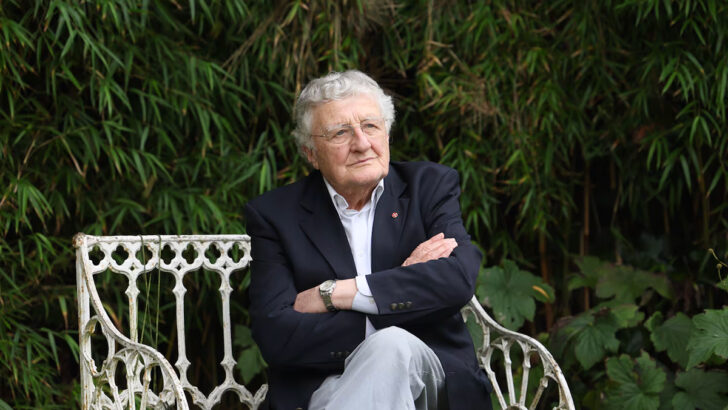In Good Time: A Memoir,
by Martin O’Brien
(Red Stripe Press, €15.99 / £14.79).
J. Anthony Gaughan
The Good Friday Agreement is a pair of Agreements signed on April 10 (Good Friday) 1998 which ended most of the urban warfare and violence of the previous thirty years in Northern Ireland.
It is made up of the Multiparty Agreement between most of Northern Ireland’s political parties and the British-Irish Agreement between the British and Irish governments. The Agreements were approved by large majorities of voters across the Island in two referendums held on May 10 1998. Northern Ireland’s present devolved system of government is based on the Agreement.
This Agreement was immensely beneficial to the citizens of the UK, the Republic of Ireland and specifically those of Northern Ireland, marking the end of difficult relations between the UK and the Republic of Ireland and more than thirty years of murderous and tragic mayhem in Northern Ireland.
Roles
Many people had roles in ensuring that the negotiations leading to the GFA were successful. Not least among them was Reverend Harold Good. One of his crucial roles was to be a co-witness to the IRA placing their weapons beyond use.
Following his graduation from Methodist College he spent a year teaching in a two-teacher village school in Co Fermanagh”
And as this Memoir reveals it was but one aspect of his life-long commitment to the Peace Process in Northern Ireland and elsewhere.
Harold Good was born in Derry on 27 April 1937. He was a child of the Manse. His father -later to be elected President of the Methodist Church in Ireland – was then the Superintendent Minister to the Methodist community in Derry.
Harold attended Strandtown Primary School in Derry and later Methodist College in Belfast. Following his graduation from Methodist College he spent a year teaching in a two-teacher village school in Co Fermanagh.
Harold studied for the ministry in Edgehill Theological College in Belfast and was ordained in 1962. He provides a comprehensive account of his appointments to the Methodist Mission. By far his most demanding was his appointment to serve at the Methodist Church on Agnes Street on the Lower Shankill Road in Belfast.
Troubles
His time there coincided with some of the bloodiest years of the so-called ‘Troubles’. He was a first-hand witness to Rev Ian Paisley introducing his high-octane sectarian politics to the streets of Belfast. Subsequently he was appalled when Paisley, notwithstanding his calling, for political advantage, continued to stoke the fires of sectarian hatred.
He witnessed the pogrom on Bombay Street in Belfast and internment without trial. And he experienced the atrocities committed by the IRA, the INLA, the UVF, UDA and UFF.
Harold’s peace-making was noted by politicians and they called on his assistance to help them escape from the urban nightmare that was Belfast”
Through it all Harold joined with the clergy of the other denominations in peace-making. Together they calmed dangerous flashpoints and organised groups of people to work with them for peace and reconciliation. Harold’s peace-making was noted by politicians and they called on his assistance to help them escape from the urban nightmare that was Belfast.
Thus, apart from providing such back-channels for others, he facilitated numerous secret meetings between Martin McGuinness of Sinn Féin and Jeffrey Donaldson of the Democratic Unionist Party. It was the discussions at those meetings which eventually led to the remarkable partnership government co-led by Paisley and McGuinness.
While the Good Friday Agreement is Harold’s crowning glory in peace-making, this was not his only involvement in such high-stakes peace-making. With his life-long friend Fr Alec Reid, he assisted in the disposal of weapons by FARC, the Colombia Leftists, as they ended their complex guerilla, drug-based war against the Columbian government.
And later, without his friend, Fr Alec, who had died in the meantime, he was to the fore in assisting ETA, the Basque separatists to end their forty-year campaign of violence against the Spanish government.
Honoured
Harold was appropriately honoured for his life-long commitment to peace-making. Among the many honours he received, those he cherished most were the World Methodist Peace Award and the OBE.
Before concluding his reminiscing, Harold provides insightful and revealing pen-pictures of Jeffrey Donaldson, Martin McGuinness, Rev Ian Paisley and Fr Alec Reid. He also includes interesting references to leading figures of his time whom he met. Among these were Nelson Mandela and Archbishop Denis Hurley of Durban, with whom he discovered he shared a West Cork background.
This is an edifying account of one man’s life. In it Harold is ever a man of Faith. He shows himself to be ever a champion and promoter of peace, reconciliation and friendship, and as such is truly a son of the Prince of Peace.


 Harold Good, a good man at peace with the world
Harold Good, a good man at peace with the world 